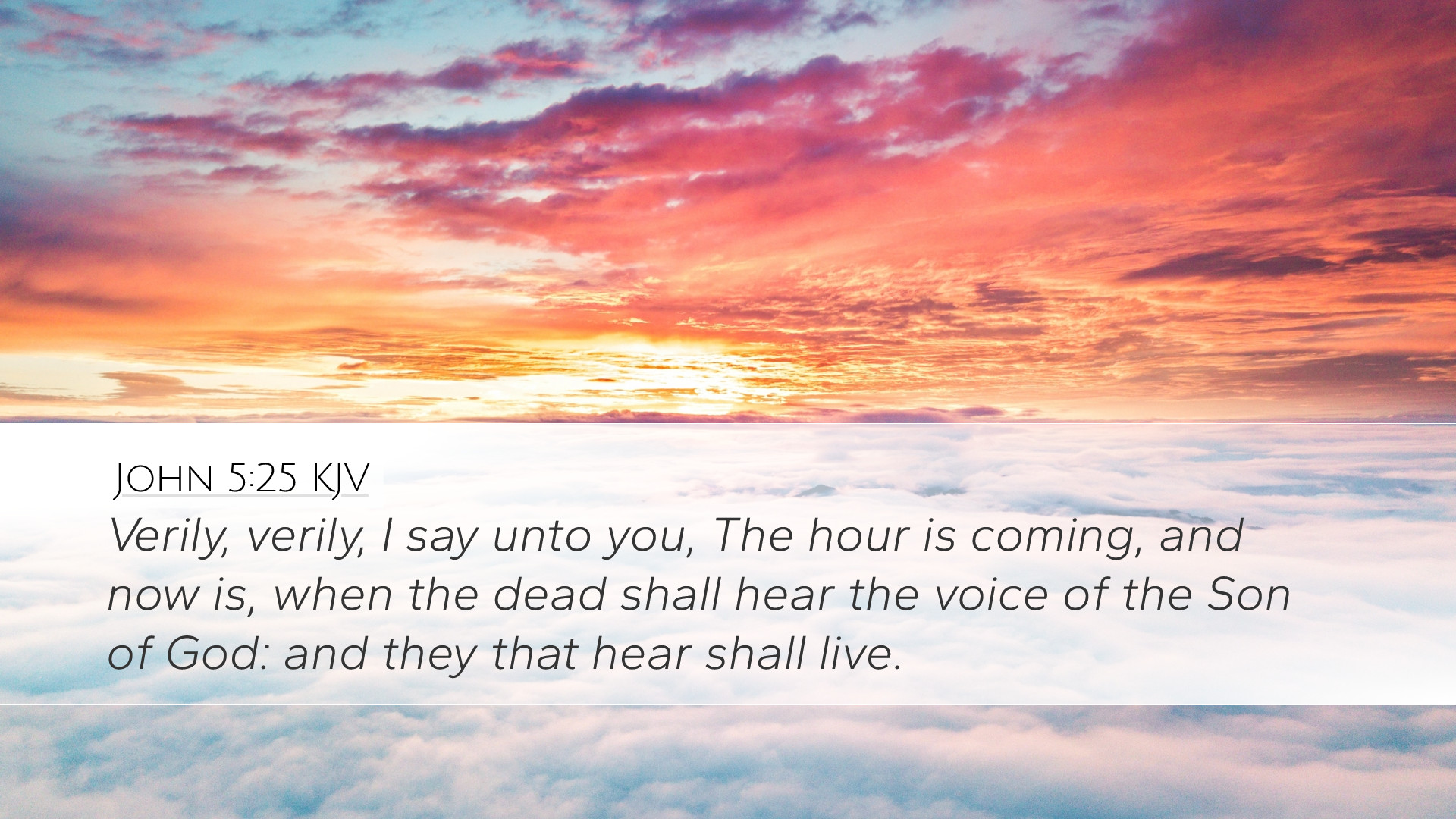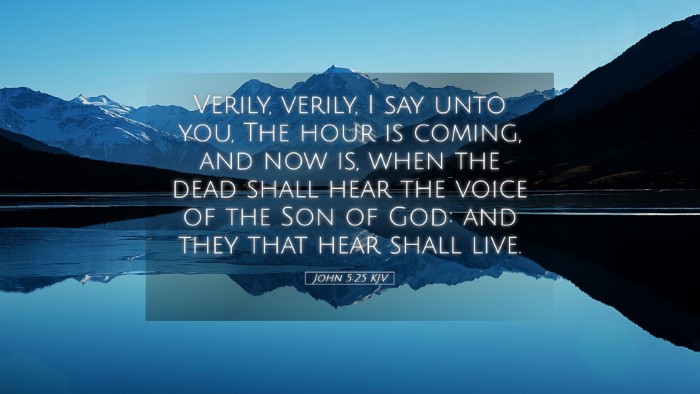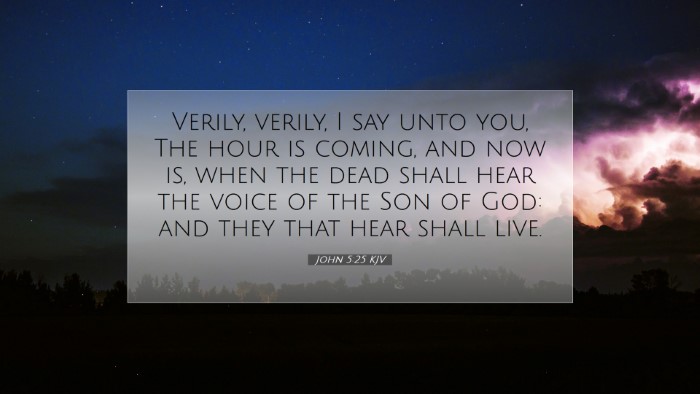Commentary on John 5:25
John 5:25 states: "Verily, verily, I say unto you, The hour is coming, and now is, when the dead shall hear the voice of the Son of God: and they that hear shall live." This verse carries immense theological significance and conveys profound implications regarding the authority of Jesus and the concept of resurrection. It encapsulates critical themes of life, death, and spiritual awakening, deserving careful exegesis.
Contextual Overview
To fully appreciate this verse, it is imperative to understand its context within the Gospel of John. This passage falls within a larger narrative where Jesus heals a man at the pool of Bethesda, leading to discussions about His authority and the nature of His mission. Jesus's declarations in this chapter challenge the Jewish religious leaders and set the stage for further theological discourse.
Insights from Public Domain Commentaries
Matthew Henry's Commentary
Matthew Henry emphasizes the duality of the "hour" mentioned in this verse. He notes that it refers both to a present reality and a future event. Henry writes that "the dead" not only signifies physical death, but also those who are spiritually dead, reflecting a broader range of resurrection connected to faith in Christ.
He states that "the voice of the Son of God" is powerful and transformative, calling life into the spiritually dead. This, albeit metaphorical, also hints at the literal resurrection that will occur at the end of times. The emphasis on "verily" underlines the truthfulness and certainty of Jesus's proclamations, establishing His authority in declaring life where there was none.
Albert Barnes’ Notes on the Bible
Albert Barnes builds on the significance of the phrase "the hour is coming, and now is." He explains that this indicates a transition from physical resurrection to a spiritual awakening that is presently occurring through the ministry of Jesus. Barnes argues that when Jesus speaks, His voice transcends life and death, providing spiritual awakening to those who respond to it.
Moreover, Barnes notes that the resurrection can be understood in two forms: spiritual resurrection (the quickening of the soul towards God) and bodily resurrection at the end of time. Thus, Barnes highlights the immediacy of Jesus’s ministry—the manifestation of God's power was not delayed, but actively happening in the present moment.
Adam Clarke's Commentary
Adam Clarke offers a detailed interpretation of the term "the dead." He notes it refers not only to those physically dead but also to those "metaphorically dead” in sin. He emphasizes that "The Son of God" possesses the divine authority to grant life, and His call is a rallying call to all who are in spiritual darkness.
Clarke further illustrates the profound theological implications of this passage. He suggests that the phrase "shall hear the voice" illustrates the personal nature of Jesus's call, which could penetrate the hardest of hearts. The response to that voice brings forth life, reaffirming the connection between faith and divine intervention. He effectively argues that this scripture assures believers that those who respond to Christ will indeed experience life eternal.
Theological Implications
This verse is pregnant with theological significance that spans across dimensions of soteriology (the study of salvation), eschatology (the study of end times), and Christology (the study of the nature and work of Christ). The affirmation that the dead will hear His voice speaks to the omnipotence of God's word, highlighting a critical aspect of Christ's mission: to bring salvation and resurrection to humanity.
Spiritual Resurrection
One key aspect is the notion of spiritual resurrection. As noted by the commentators, those who hear the voice of the Son of God signify the awakening of one's spirit to the truths of the gospel. A crucial takeaway for pastors and theologians is the call to preach with the understanding that God's word has the power to bring spiritual life. This directly connects with the Great Commission to evangelize, as the voice of Christ invites all towards Him, promising a life transformative experience.
Physical Resurrection and Hope of Eternal Life
Moreover, this verse foreshadows the ultimate physical resurrection, an essential doctrine in Christian eschatology. The assurance that the dead will rise at the voice of Christ offers hope for believers concerning the afterlife. It promises not just a spiritual resurrection but a future physical restoration, renewing the relationship believers have with Christ forever.
Conclusion
In conclusion, John 5:25 provides deep insights into the nature of Jesus’s ministry, the power of His voice, and the promise of resurrection for both the spiritually and physically dead. The commentary from Matthew Henry, Albert Barnes, and Adam Clarke reinforces these themes, drawing connections between the present-day implications of hearing Christ’s voice and the future hope of eternal life. For pastors, students, theologians, and Bible scholars alike, this verse serves as a foundation for understanding the grace and authority encapsulated in the Gospel message.


